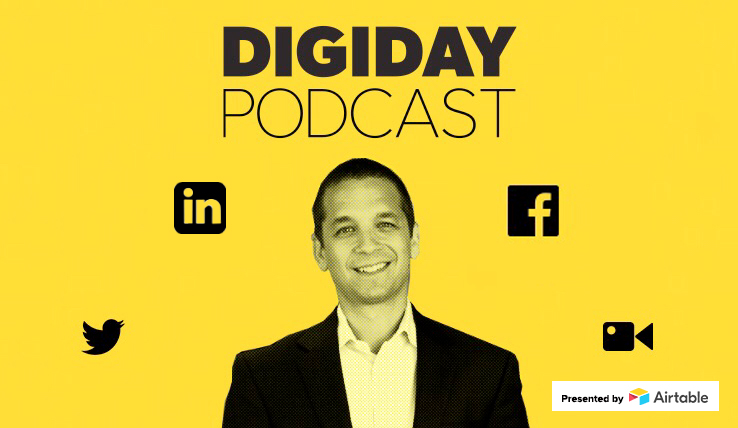Secure your place at the Digiday Publishing Summit in Vail, March 23-25
LinkedIn’s Dan Roth: ‘We don’t want to burn newsrooms’

Subscribe: iTunes | Google Play | Stitcher | Anchor
The news industry has a love-hate relationship with platforms, but for LinkedIn, that doesn’t need to be the case.
“We don’t want to burn newsrooms,” said Dan Roth, editor-in-chief at LinkedIn, in this week’s episode of the Digiday Podcast. “We know what it’s like to come from a publisher where you’re sweating out the dollars every single day. You can bring that perspective into the product. Editors get to be involved in product decisions. Editors are the voice of publishers.”
Roth, a former editor at Fortune, discusses LinkedIn’s relationship with publishers, its differentiation from other social platforms, video and more in the episode.
Edited highlights appear below:
LinkedIn is not a trap
“The strategic goal [for LinkedIn] is to keep people coming back and feeling like they’re getting something valuable. You look for a job occasionally. You are always looking for ways to get ahead. If you’re thinking about economic opportunity, you come to LinkedIn every day to build you own voice or learn what’s happening in the world. The key is not to trap them in LinkedIn. It’s not about getting people to spend all their time on LinkedIn all day long.”
LinkedIn is not competition
“Everyone is competing for people’s time and attention. We are a competitor as much as “Candy Crush.” But we are not a competitor in that we send massive amounts of traffic to publishers. We do want people to publish original content on LinkedIn, but not the original articles. Invest in your reporters and editors who come in and talk about the story behind the story.”
LinkedIn is for normal people
“Twitter is an amazing place for journalists. LinkedIn is an amazing place for everyone else. Accountants and doctors are not on Twitter, but they use content on LinkedIn. One of the ways they use LinkedIn content is to connect. They send a story in their feed to people as an ice breaker. It’s [also] not a cynical platform. People think they have something to gain from this information, and they have a chance at climbing the ladder.”
More in Media

How creator talent agencies are evolving into multi-platform operators
The legacy agency model is being re-built from the ground up to better serve the maturing creator economy – here’s what that looks like.

Why more brands are rethinking influencer marketing with gamified micro-creator programs
Brands like Urban Outfitters and American Eagle are embracing a new, micro-creator-focused approach to influencer marketing. Why now?

WTF is pay per ‘demonstrated’ value in AI content licensing?
Publishers and tech companies are developing a “pay by demonstrated value” model in AI content licensing that ties compensation to usage.








